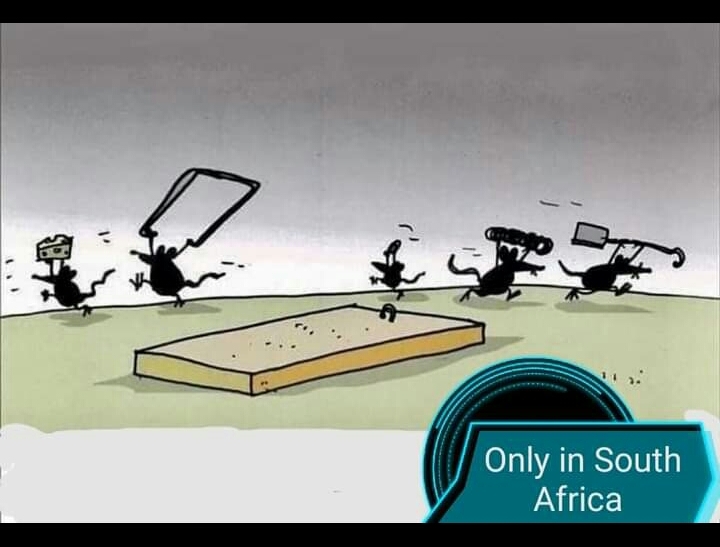A couple of people sent me this article, and I see that Insty referred to it as well:
South Africa’s power blackouts: Solutions lie in solar farms, battery storage at scale, and an end to state monopoly
Rolling blackouts are costing South Africa dearly. The electricity crisis is a barrier to growth, destroys investor confidence and handicaps almost every economic activity. It has raised input costs for producers and retailers, and has triggered a new round of inflation and interest rate increases.
Any solution will obviously incur cost because it will require the adoption of new technologies, such as large-scale grid-connected solar farms that are linked to battery energy storage. But these technologies are expensive.
…which means that none of this is going to happen. South Africa has been plundered by the Usual Suspects until the coffers are pretty much empty, taxes are about has high as can be levied without causing collapse — what happens when only about 15% of the population is at all economically active, and only 0.5% of taxpayers contribute over 85% of tax revenues.
Even in a perfectly-ordered society (which South Africa isn’t even close to), the job of fixing its power woes would be be pretty much impossible. As things are… not gonna happen.
And let’s not even think about foreign investment. While the amounts are quite small, relatively speaking, one always has to factor in corruption — which takes anywhere from 40% to 60% off the top — and loans will never be repaid. Not even China will countenance investment, given that their previous forays into Africa have been, so far, disastrous. And South Africa is not Sri Lanka. They can’t be bullied into compliance with the Belt & Road program because the distances are just too great and the population large and resistant. (China could say, “Okay, you’ve defaulted on your loan; give us all your platinum”, whereupon South Africa would just say, “We can’t get the ore to the port; come and get it.”)
Even if South Africa were suddenly to discover vast resources of lithium (similar to its vast coal reserves), they’d never be able to get the stuff out of the ground. One would think that in a country with huge gold mines all over the place, a few lithium mines would be no problem. Alas, the gold mines are now producing only about 40% of what they used to produce under the eeeevil Apartheid Government.
Those giant solar farms the article talks about? They’d be stripped for parts within a month of installation. And yes, surround them with security guards — except that the guards would become the new entrepreneurs, flogging solar panels and batteries to householders desperate for electricity.
As with any African catastrophe, there is no workable solution, no possible way that any kind of fix will be either implemented or have any kind of longevity. If even ESCOM, an established, one-time robust powerhouse [sic] that once delivered South Africa’s excess electricity to all its neighbors can be mismanaged into complete collapse, why would some newfangled, sophisticated (and fragile) eco-friendly solar system fare any better?
To paraphrase some guy’s earlier words: let (South) Africa sink. They deserve no better.





